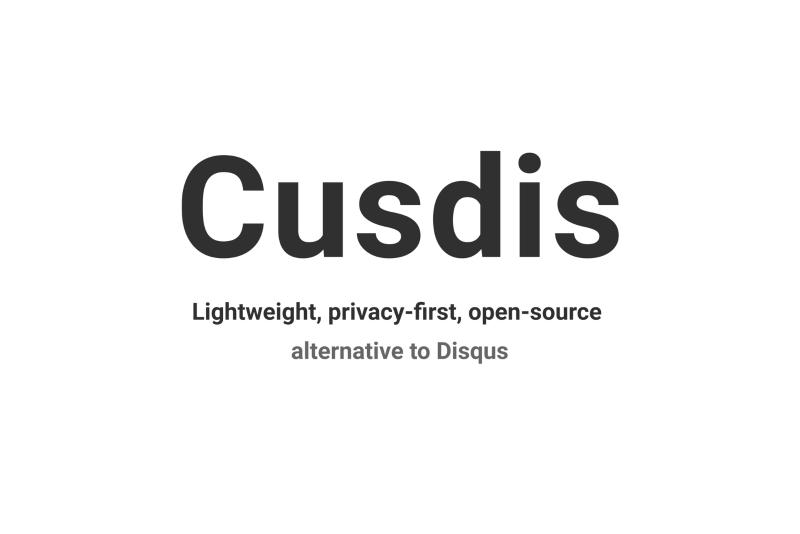What is Cusdis?
That was my first question when deciding on a technology for my comment section on posts.
As they say on their website, cusdis.com:
Cusdis is an open-source, lightweight, privacy-first alternative to Disqus. It’s super easy to use and integrate with your existing website. We don’t track you and your users."
And what is Disqus? It’s a commonly used commenting system on various websites and online communities, allowing users to comment on anything and participate in blog discussions.
Of course, as a proud developer at Open Innovation in Privacy, when I discovered that there was a commenting technology similar to one of the most popular ones but with a commitment to user privacy, I had to choose it.
How to host it?
At first, I assumed I needed to host the technology by myself, but that wasn’t the case.
Cusdis offers a free plan to host one site and manually moderate up to one hundred comments per month, with an additional ten comments that can be moderated automatically. You can also pay $5/month for unlimited sites and moderation features.

How to set it up?
When registering on Cusdis, you can generate a board for your site and get all the necessary information.
The platform gives you the embedded code you need to set it up:

If you are using the same template as me on your website, you can take the id from that embedded code (the data-app-id value) and put it in the configuration (on config/_default(params.toml):
| |
How does it work?
The comments can be anonymous, as users can opt for a random username each time they engage. To maintain a positive and safe environment, comments aren’t published immediately.
As the page owner, you can moderate them through the dashboard:

And don’t worry about knowing when a user comments on your page. Cusdis will alert you via e-mail ;)
![]()
Conclusion
If you are looking for a commenting system, give it a try to this privacy-first alternative. It’s not just user-friendly; it’s a reliable and privacy-conscious choice!
Image taken from cusdis.com
